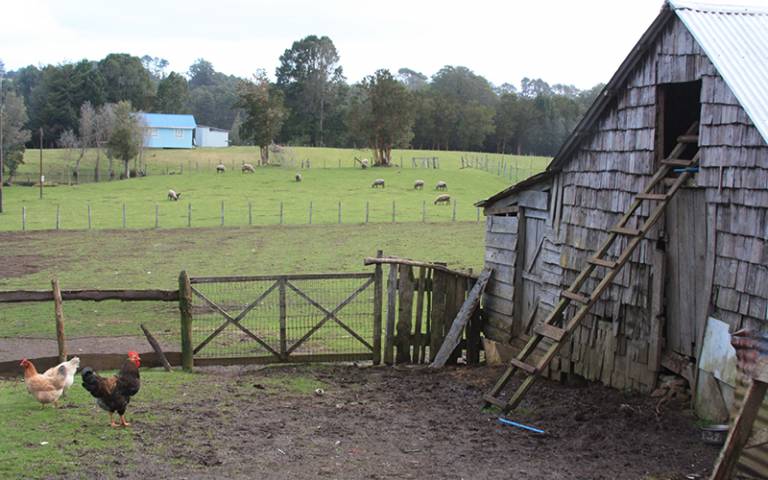DPU PhD candidate successfully defends thesis on the subjectivation in rural development in Chile
4 October 2021
Congratulations to DPU PhD candidate, Mariana Huepe, who successfully defended her thesis that explores the process of neoliberal subjectivation in rural development in Chiloé, Chile, focusing mainly on the experience of local women.

Through her thesis, Mariana argues that there is no straightforward correspondence between what development intends to do and what occurs in practice. Although the efforts to create responsible, rational economic women shape the relation of the Chilean state with the rural poor, parallel state interventions and discourses do not necessarily point towards the same ideal.
In general, the literature that critically explores rural development in southern Chile centres on the impact of extractivism and economic globalisation on the environment and local livelihoods. Although these studies address essential issues, such as rural-urban migration, the proletarianisation of farmers, and gender and cultural transformations, there is little analysis of the role that development has in shaping the behaviour and subjectivities of the rural population. Her research aims to fill this gap by focusing on how the national and local state’s development practices and discourses shape people’s understanding of their own lives and their relationships with others.
Empirically, the research focuses on a range of relevant governmental programmes during the salmon industry crisis and in the immediate aftermath. It draws on qualitative and quantitative data from diverse primary and secondary sources. Primary data includes interviews with local civil servants, programme implementers and civil society representatives, a socio-economic household survey and in-depth interviews with local women.
Mariana concludes that poor rural women in Central Chiloé build on the contradictions of state interventions and discourses and their culture and knowledge, to deviate from neoliberal ideals and express subtle yet relevant critiques to the Chilean state development approach in rural territories.
 Close
Close

